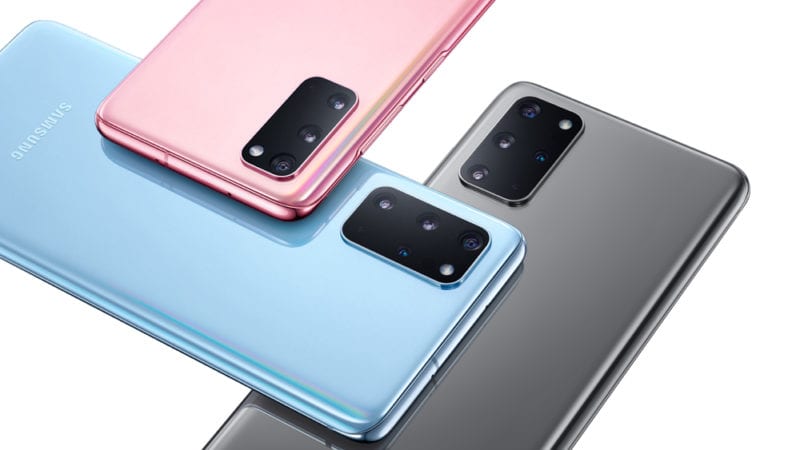
Samsung has officially unveiled the latest entry in its flagship Galaxy smartphone lineup, and is determinedly sticking with in-display fingerprint scanning as its key authentication feature.
That’s not to say that the in-display tech is the most important feature of the new Samsung Galaxy S20; rather, Samsung has become the latest major smartphone maker to focus on imaging and camera capabilities to attract consumers. The standard Galaxy S20 features a 12MP wide angle camera, a 12MP ultra wide lens, and a 64MP telephoto lens; while the premium S20 Ultra features a 108MP wide angle lens and a 108MP telephoto lens.
The Galaxy S20 and the S20+ also feature a 30X zoom feature, while the Ultra has an AI-powered 100X Super Resolution Zoom. And the devices support 8K video.
5G connectivity is the other flagship feature of the S20 line, with every one of the devices supporting the technology.
As for in-display fingerprint scanning, it is decidedly not a flagship feature of the new devices. A press release outlining the new devices only mentioned their ultrasonic fingerprint sensors in an abbreviated technical specifications section at the bottom. This reticence may stem from embarrassment over the fiasco that emerged last autumn with reports that the Galaxy S10 and Note10 fingerprint sensors – also ultrasonic in-display technologies – were allowing unauthorized users to access devices when certain screen protectors were used. Samsung later issued a software update to patch this problem up, but it may be that the company is not keen to remind consumers of the original issue.
Meanwhile, there is almost no mention of face unlock functionality for the new devices – again, just a mention of “facial recognition” among the line’s technical specifications. While Apple and Google have both ditched fingerprint scanning entirely in favor of 3D facial recognition technologies in their latest smartphones, Samsung has evidently decided to go in a different direction – or rather to stick with the one it had already chosen.
Sources: Samsung, The Verge, Android Police
—
(Originally posted on Mobile ID World)






Follow Us